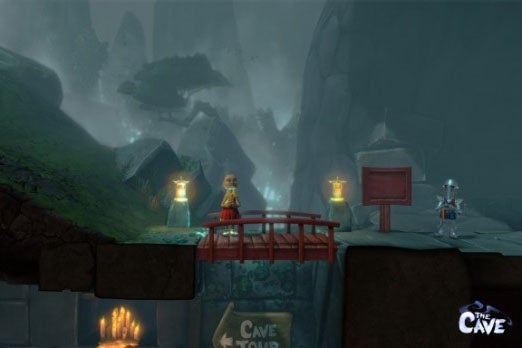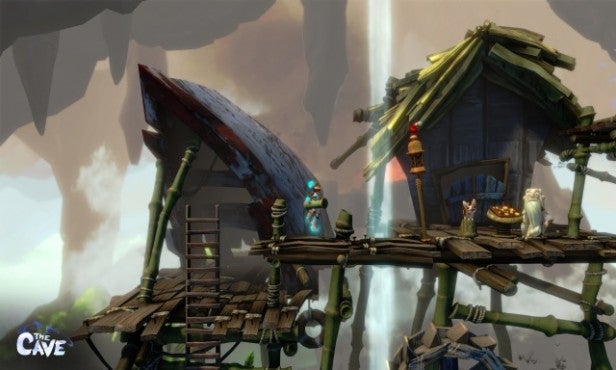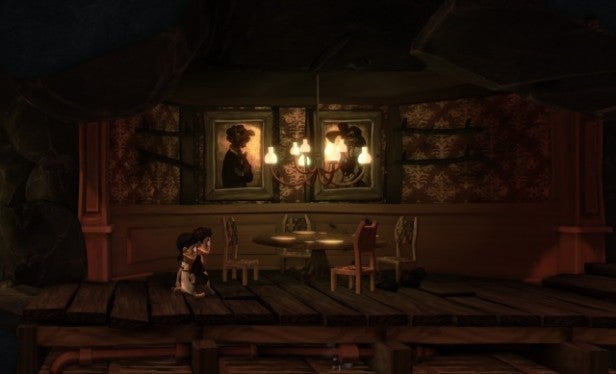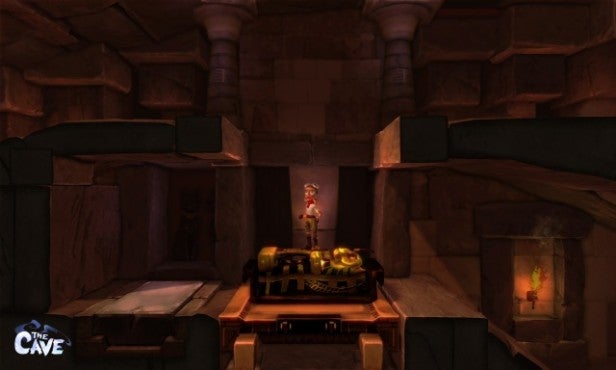The Cave Review - The Cave: The Verdict Review
The Cave: The Verdict
A smart subterranean adventure from the brains behind Monkey Island

Sections
- Page 1 The Cave Review
- Page 2 The Cave: The Verdict Review
Your Choice Matters
The clever thing is that everything rests on the heroes you select. These range from a dumb hillbilly to a pair of twisted twins to a knight who might not be all that he seems. Not only do different combinations offer alternative solutions to a proportion of the puzzles, but your choice will affect the areas you play through and the order in which you play them. Some areas remain the same from game to game, but pick the Knight, the Hillbilly and the Scientist and you’ll get a different game from somebody who picks the Adventurer, the Monk and the Twins.

Play through just once and you actually risk missing out on some of the most inventive areas, like the Twin’s deranged family mansion or the Adventurer’s deathtrap-packed Egyptian tomb. What’s more, without playing through multiple times you won’t see every character’s back story. While you could complete The Cave in around five hours, competing it properly will take you a fair bit longer.
Grumbles and Moans
Now, there are several criticisms you can level at The Cave. One is a weird jerking on the screen at times as the game loads up a portion of the current area, and some people find this hugely irritating. We didn’t, but maybe that’s just us. Meanwhile the platforming controls aren’t as tight or responsive as you’d find in a Rayman or a Mario, though this is something you get used to, and it’s not as if the game asks you to perform many really demanding acrobatic feats. In fact, as the cave itself reminds you, you can’t die in The Cave (anything fatal just returns you to a point nearby).

The most serious complaint is that the slicing of the game into defined areas and the limited number of objects available means the puzzles aren’t especially demanding. Without question, those of us who cut our teeth on Day of the Tentacle, Secret of Monkey Island and Grim Fandango (or on the Infocom and Magnetic Scrolls games that preceded them) won’t find The Cave more than occasionally challenging. Yet there’s still something absorbing about the flow of puzzles, and it’s a game you can happily trundle through in a couple of sittings. True, there’s some backtracking around the complex to be done, but use your trio efficiently and you can easily keep this to a minimum.

Some will disagree, but we can forgive The Cave a lot because it has one thing more flawless games lack: personality. The protagonists might not have the dozy charm of Guybrush Threepwood or the sheer nerd appeal of Day of the Tentacle’s Bernard, but each has their own twisted story and dark secret to reveal. The secondary characters are actually better, each voiced with the kind of silly dialogue that was once the stock and trade of LucasArts adventures. Best of all is the Cave itself, an enigmatic entity with a cavernous ego and a nice line in sardonic gags. The Cave won’t make you laugh as much as Monkey Island 2, but it’s a very easy game to play and love.
Verdict
It’s easy to get caught up in what The Cave isn’t – a graphic adventure that can stand up with a LucasArts classic – and miss out on how enjoyable it is. This is a smartly written, well-designed arcade adventure, with some fine puzzles, funny moments and a nice line in black humour. There are some minor issues with controls and the puzzles could be more challenging – but The Cave is a game that doesn’t just reward replaying, it practically begs for it.

